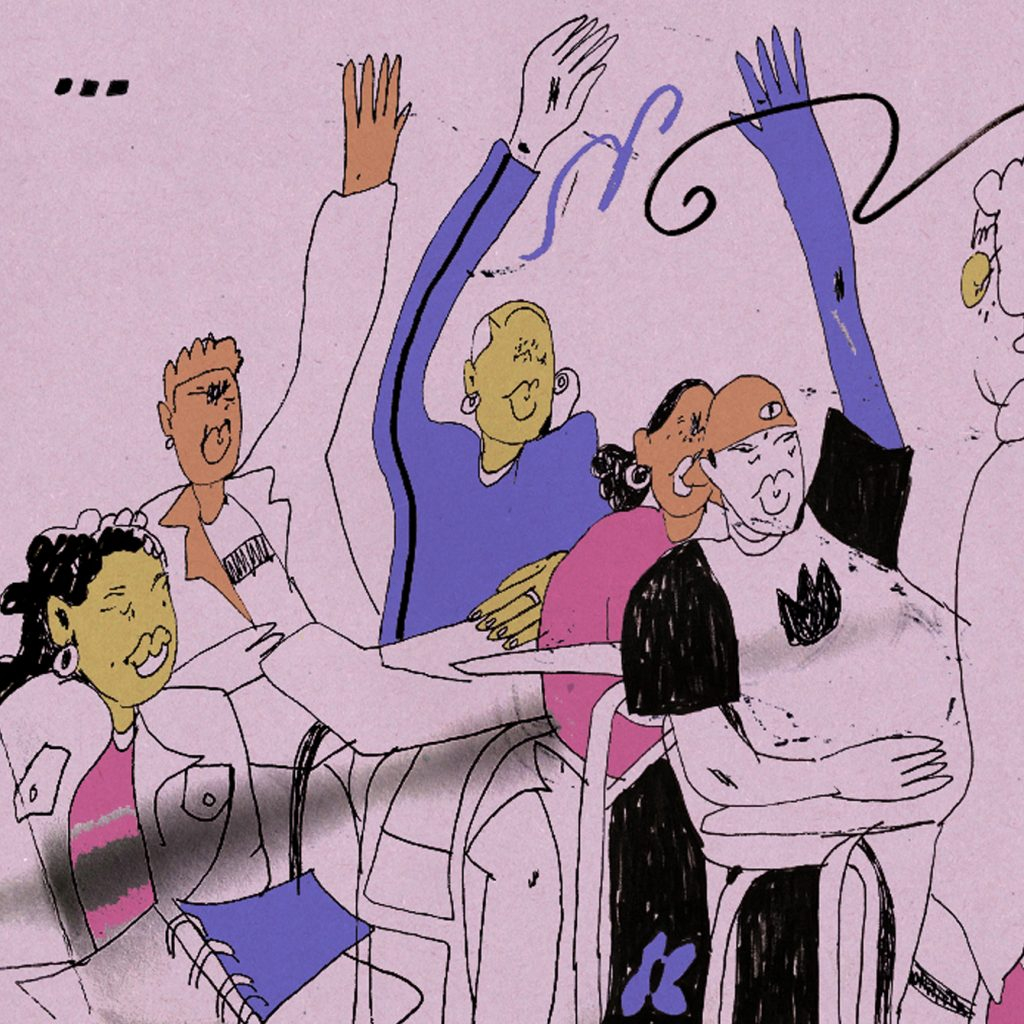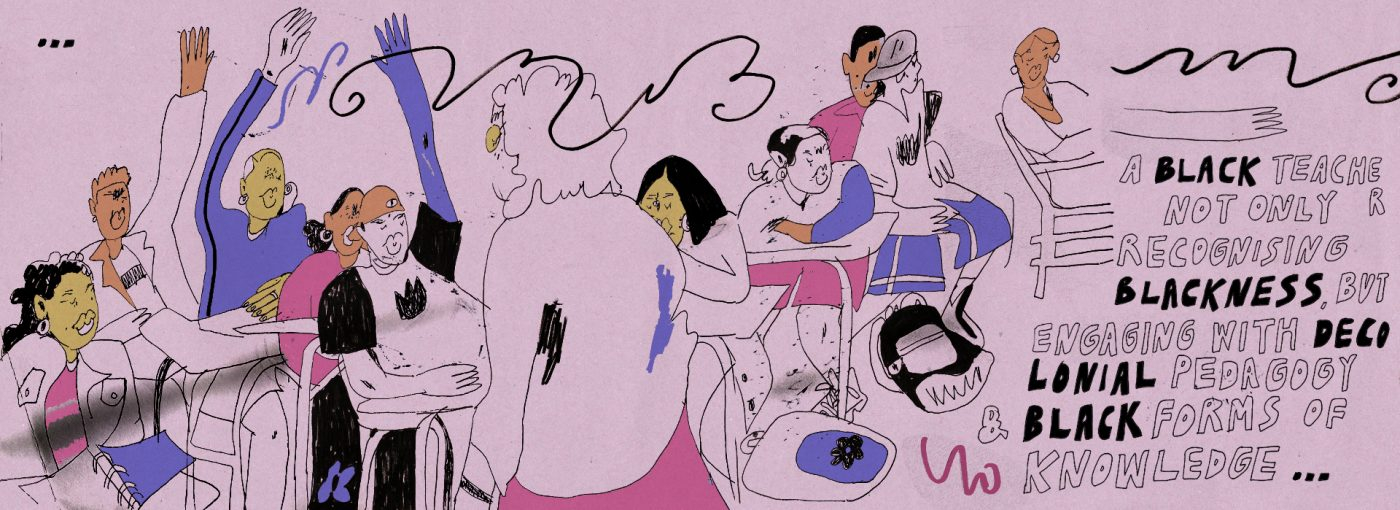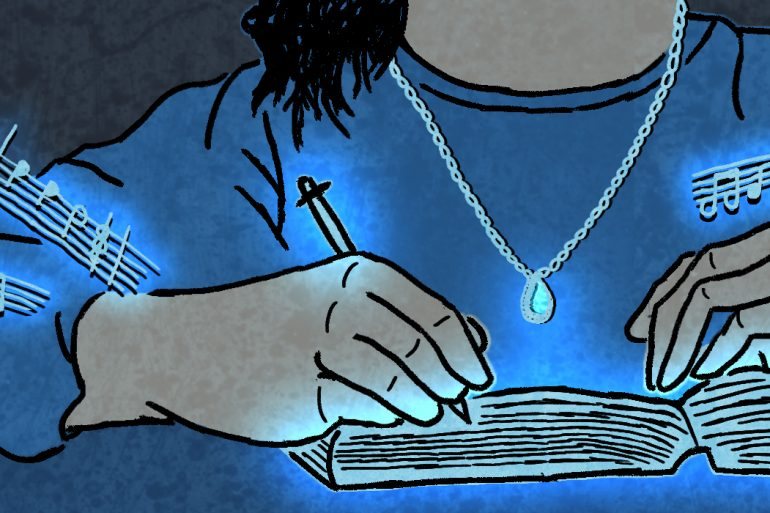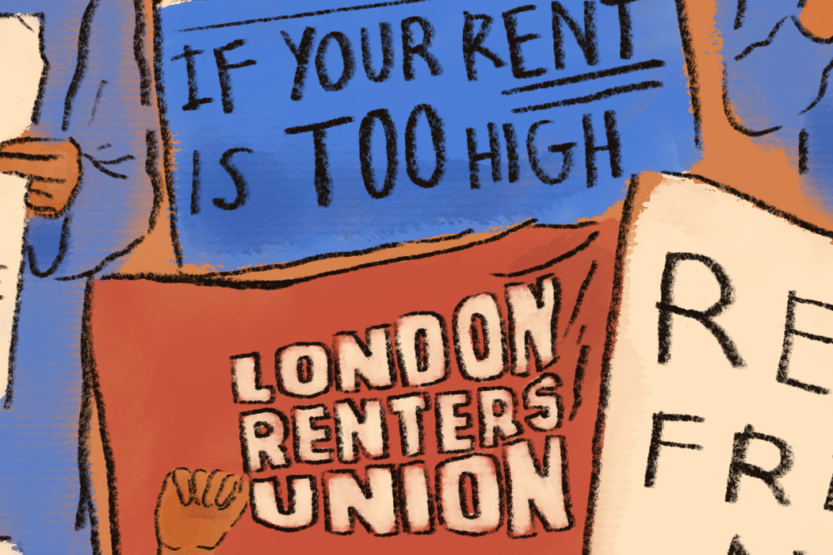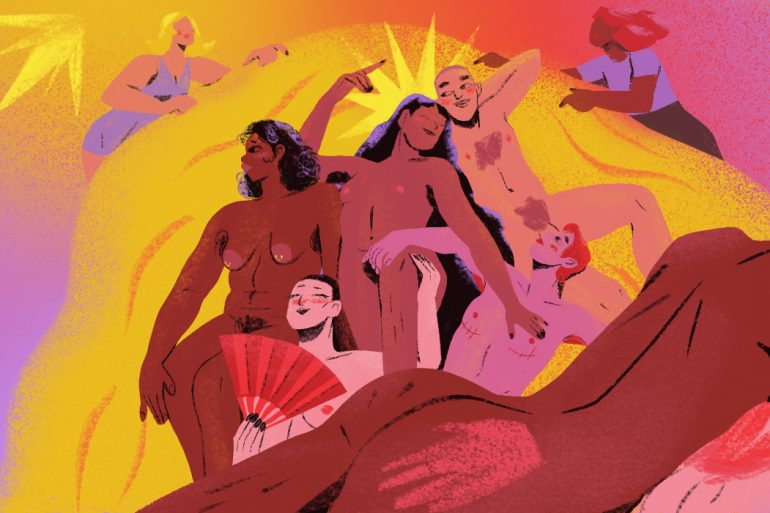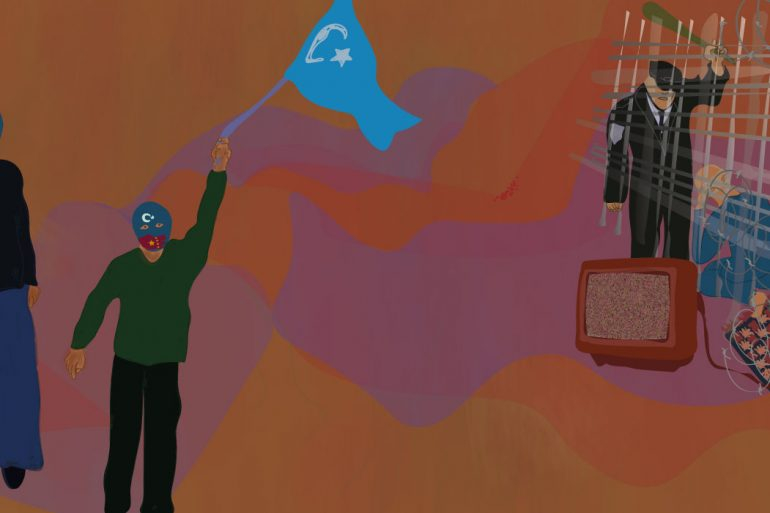The world is burning – physically and metaphorically. According to anti-racist educator and author Jeffrey Boakye, transforming education is core to solving this.
Jeffrey is a Black Brit by birth – Brixton, South London to the bone. While a teacher by vocation, Boakye describes his expertise as an anti-racist educator as being: “a mindset that was in [him] all along but lay dormant until galvanised by adversity.”
In his new book I Heard What You Said, Boakye spans his journey as a teacher: using his moments of growth to teach us about the power of a classroom that engages with race and racism head on, centres students’ agency and supports young people to grow and flourish. In doing so, he makes the case for anti-racist education and calls us all to use this as “an example of how one can learn along the way and build our own strategies to make the world a better place.”
Transformation not tweaks
We’re not talking about tinkering at the edges here – students are leaving school and being chucked into a world that necessitates an astronomical rewrite.
In today’s world, young people are “unearthing truths”, as Boakye puts it. We’re speaking truth to power: demanding that we undo the havoc capitalism has wreaked on people and planet.
Today’s communities are marching the streets chanting: “Black Lives Matter”, seeking to uproot white supremacy and the ongoing violence of colonialism and imperialism. Today’s workers are observing the widening gap between rich and poor and there are murmurs of a general strike on the horizon.
To be frank, today’s education system just isn’t cutting it, if it isn’t covering it.
Yet, to say this: to challenge the canon, to reimagine an education system built for its time, is considered radical, perhaps even revolutionary. This, in and of itself, is a damning indictment of the rigidity of our education system – and yet it does feel that way.
Against this backdrop, reading I Heard What You Said feels clandestine. A Black teacher not only recognising Blackness, but engaging with decolonial pedagogy and Black forms of knowledge production in classrooms in the UK? Nadhim Zahawi, Michelle Donelan, James Cleverly – or today’s winner of the daily game show Revolving Door of Secretary of State for Education – must be shaking!
Jeffrey and I spoke prior to the cabinet reshuffles moving like a DJ who won’t give you more than ten seconds of one track, but he already predicted that, when it comes to education, “the Government’s eyes are so far off the ball that it doesn’t even know where the ball is rolling – and it’s only going to know it when it’s falling off the table and smashing.” Is that broken glass I hear?
Perhaps above all else, the element of this book that feels furthest from what the present education system dictates is the centrality of marginalised students, specifically Black students.
The style of the book models this way of teaching: Boakye is purposely dialogic, is not preach-y, nor has know-it-all energy. He describes this kind of vulnerability as: “dropping the façade of authority that society encourages us to put up” – it’s decolonial in itself. It positions the reader not as a passive consumer of anti-racist knowledge but as active participants in this story of transformation. It pre-empts our questions and our challenges, leaving space for each of us to insert our own narratives.
(Re)defining What Is (Un)acceptable, (Un)important, (Im)possible
As a Black student navigating a canon in higher education, I’m used to prying open pre-destined narratives by force – squeezing me, us, Blackness, into frame. This book is jarring in the most refreshing way because, in the way all the greatest teachers do, Boakye invites you to be present and active – this time in his own learning journey.
Getting to speak to the man behind the book widened the frame even more because when Boakye speaks about his words, he situates them far broader than education.
He is acutely conscious that the education system through which we funnel children and young people is mirrored in the society those students go on to build. We spend our formative years sponging up information from our teachers, our schools, our curriculum.
Much of what we learn is implicit – the loudest lessons often coming from what is unspoken because, according to our education system, it’s not worth talking about. As Boakye puts it when we’re talking, the architects of this system assume that “you are at a point of deficit until we fill you up with what we know to be true.”
As students sit behind desks, the foundations are being laid for a common understanding of what we deem (un)acceptable, what we class as (un)important, what we should consider (im)possible. All the while, the world outside our windows keeps turning and for today’s students – perhaps more so than ever before – the pace at which that world is changing is irreconcilable with a static national curriculum and a rusty, outdated canon.
The four essential conversations
So, what’s missing? What is invisiblised by omission? What discussions are rendered unacceptable, unimportant, impossible by their tactical erasure?
I pose the first question to Boakye, expecting him to say the answer could be endless but he quickly retorts “I’ve been thinking about this a lot recently” – and almost as if drawing out topics into Eisenhower’s urgency and importance matrix, Boakye manages to narrow down some of the most pressing gaps in our education system today.
In no particular order:
Subscribe to shado's weekly newsletter
Exclusive event news, job and creative opportunities, first access to tickets and – just in case you missed them – our picks of the week, from inside shado and out.

Geopolitics – Boakye draws on what is happening in Ukraine, the global ramifications of this and the racialised nature of how we interact with different wars, who is recognised as a refugee and, by extension, seen as deserving of safety.
Identity politics – he describes it as how forms of marginalisation “complicate our existence in the world”. I take this to mean that he isn’t using the bastardised version of this phrase which reduces us to individual traits and consequent oppression Olympics, but the original intention of the phrase to recognise the way structural injustice intertwines.
Sustainability – “the world is in trouble, Greta told us that,” he chuckles, but it’s no joke when he comes to talk about the urgency of understanding sustainability not as an add-on topic but as inherently important to all that we do.
Last but not least, social justice – he explains that this language was coined “in the 19th Century, at a time where there was a lot of injustice because of industrialisation”. As well as racism and classism, elsewhere we talk about this in relation to trans rights, disability justice and more, and the connectivity between forms of marginalisation and “freedom from all these -isms.”
Boakye calls these “the four essential conversations”.
If our education system isn’t addressing these four core challenges, it’s not working. This speaks to a broader reflection the book makes: education should challenge “the status quo through criticality and creativity.” Meaning that, if spaces of education aren’t provoking open, informed conversation about the seminal topics of the day, then they aren’t serving their purpose. In fact, they’re failing students and, ultimately, failing society.
Without young people accessing education that prepares us for a world geared to be fairer, safer, more just and more sustainable, the future is bleak.
Reimagined education for a reimagined future
The fact that we maintain such an archaic structure would be laughable if it wasn’t so harmful.
The vast majority of us are carted into an education system still chained to Victorian teaching styles, assessment methods and policies. A system that was built to churn out students prepped for factory work, specifically production lines.
Then Margaret Thatcher and Kenneth Baker’s imposition of a national curriculum in the 80s imposed centralised control that limited schools’ capacities to respond to the evolving concerns and interests of their students and, ultimately, “to move along market principles”, Boakye says.
A far cry from Thatcher & Baker’s machinations, distant too from Gavin Williamson’s position during his time as Secretary of State that “the purpose of education is to […] lead to a fulfilling working life” (emphasis on ‘working’), Boakye’s view of education is that school should prepare young people for the world, that “the urgency required to address social justice must surely be designed into the curriculum.”
As an educator, Boakye views his students not as future workers who need to be reared in order to contribute neatly to the economy, but as present people. People who are members of their communities; people who have hopes and dreams; people who can change the world.
From hearing to doing
Despite bringing the gravity of the abyss between these approaches to light, nothing about this book is defeatist. Quite the opposite, I Heard What You Said is a stirring call to action: to listen to students and what they need and demand of their education.
Once the book has dealt with (and largely problematised) the education system as it is, it then becomes apparent that the question of student agency is core to this piece. Boakye reminds us that from the wells of systematically exclusionary education has sprung a groundswell of student, educator, and community resistance.
The book calls on the example of the Pimlico Academy students who protested Islamophobic and anti-Black school policies, and as you read you can’t help but feel compelled by the power of anti-racist educators chipping away at this system one group of students at a time.
This brings to mind the likes of No More Exclusions, an abolitionist grassroots coalition movement focused on racial justice in education, abolishing exclusions and promoting free, quality and inclusive education for all. When we talk about the anti-racist organising taking place, Boakye says that “when you truly see what’s going on in education, it becomes an act of wilful malice to not do something about it.” For him, inaction is not an option.
It’s often disempowering to remember that the world is burning. But students, educators and community groups know that education holds great power to make the impossible, possible – and that we all have to play a part in making that reality. In schools, colleges and universities we can begin to broaden the parameters of what many have been taught are the limitations of our society.
At the end of this book, this core message is summed up as Boakye reveals his underlying hope: “in years to come, I want the education system to be able to look history in the eye and say: ‘I heard what you said.’ And then – and this is key – I also want the system to be able to say: ‘and I did something about it’.”
So, what are each of us doing, rather what are we doing as a collective, to force this education to hear us? Towards the end of the interview, Boakye remarks “look at who’s running society!” (to which I yelled “speak on it!”). It reminds me that it must be us – students, young people, educators, local communities, marginalised people – who reimagine education from the ground up.
What can you do?
- For a resounding wake-up call and empowering call to action in equal measure, you can find I Heard What You Said HERE. Read, reflect, share and act!
- I asked Jeffrey Boakye who inspires him. Writers he mentioned include bell hooks, who “often writes from a place of love” and James Baldwin, “he’s writing with fire, urgency”. To delve deeper into anti-racist, liberatory education I’d recommend:
- bell hooks, Teaching To Transgress
- James Baldwin, A Talk to Teacher
- He is also inspired by young Black artists “struggling with their own place in the world through music” with special mentions for Skepta, Little Simz, Kojey Radical, Dave, Cristale and J-Hus, who he calls his “favourite poet”. For reflections on race and oppression, you can listen to:
- Little Simz, Introvert
- Dave, Black
- J Hus, Guns & Butter
- To hear from students, young people, educators and communities doing anti-racist work in education, you can follow:
- No More Exclusions @NExclusions @no_more_exclusions_abolition
- The Free Black University @freeblackuni
- The Black Curriculum @CurriculumBlack @theblackcurriculum
- NUS Black Student Campaigners’ Network @nusBSC
